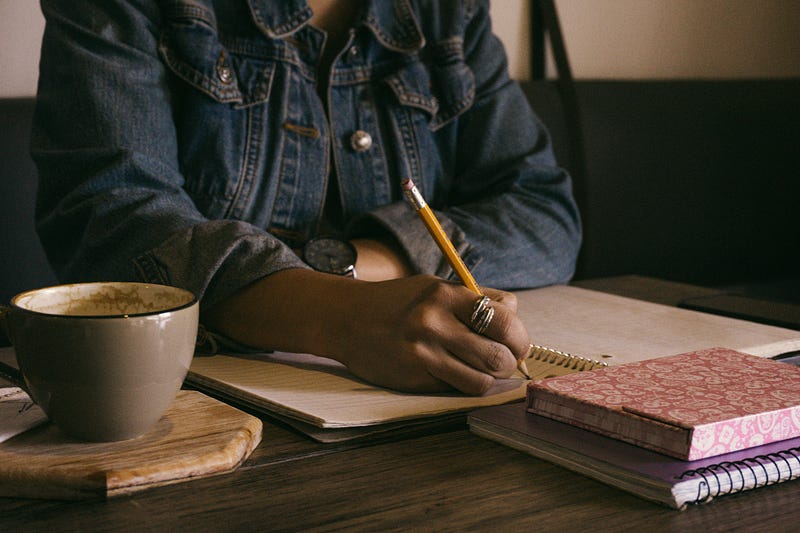6 Incredible Self-Care Tips You Can Apply Quickly
Get moving, improve your life.

Get moving, improve your life.
I started this year on a high. With some incredible plans ahead of me, I could only see a year full of possibilities and potential.
However, the pandemic hit India in March. Since then, all of us have been more or less shut inside our homes, with nothing to stare at all day long except the four walls.
In such a situation, I found it challenging to take care of my day job, my studies, and my writing. On several days, I felt burned out, so exhausted, that I had to drag myself out from my chair, collapse on the bed, and fall into a disturbed sleep.
It was a struggle, but I survived.
If there is one lesson I have learned from the tough times, it is this: hustling for your goals is essential, but caring for your mind and body is more important than anything else.
I am fortunate that I learned this lesson sooner and saved hundreds of hours I might have stumbled on and on for, without achieving significant results.
The outcome has been encouraging. I find myself in a better, more positive mood on most days. I have been told that my optimism is infectious, and I have been inadvertently spreading joy and positivity to the people around me. By aligning my self-care routine with my goals, I have also been able to achieve better results both at work and in my studies and writing.
After introspecting on the growth I have achieved in the personal front, I have come up with six incredibly simple acts of self-care that you can incorporate in your daily life. If you apply these daily, you will not only be more cheerful and jovial but also start seeing fantastic results in your work and side hustle.
1. Stand Up Every 20 Minutes
Since both my job and my writing requires me to sit in front of my computer for a large part of the day, I can say that I am guilty of leading a sedentary lifestyle.
After long hours of work, I used to suffer from cramps in my neck and aches in my lower back. I would also feel lethargic as if my brain had saturated and couldn’t take up any more information.
This changed when I set a timer on my browser to remind me to stand up and stretch every twenty minutes. If you are on the same boat as me, here is something that might terrify you. According to a recent report:
If you’ve been in a job that involves standing most of the time and have recently switched to a desk job, then it takes just 5 days of work at your new job before there is an increase in the bad cholesterol and triglyceride levels, and insulin resistance. This puts you at a serious risk of getting diabetes.
If this worries you, here’s some good news. A study published in the American Journal of Epidemiology claims that just standing up every twenty minutes could make a big difference to your long term health. It lowers your risk of chronic illnesses and helps to slow down the rate of ageing in your body.
How you can apply this
Don’t sit in one position for more than twenty minutes. Stand up and stretch your arms over your head. Close your eyes and stare into something else apart from your screen, so your optic nerves also get some exercise.
If you want to take it a step further, you can get yourself a standing desk and spend some time working on your computer while standing up. According to a report by Healthline:
When you stand, you burn anywhere from 100 to 200 calories an hour, depending on your sex, age, height, and weight. Sitting, by comparison, only burns 60 to 130 calories an hour.
2. Walk While You Talk
I am not much of a phonecall person. Even though I spend a lot of time on my phone texting with my friends, several days go by when I don’t talk on the phone with anyone.
However, I have recently started this habit of walking whenever I talk on the phone. I also have a fitness tracker that keeps count of the steps I took in a day. While it is challenging to stick to your daily step-count goal if you never leave your house, talking while you walk helps you get close to it.
According to a study by Healthline, 10,000 steps per day is a reasonable target for healthy adults:
10,000 steps works out to approximately five miles. That’s a number said to help reduce certain health conditions, such as high blood pressure and heart disease.
How you can apply this
To apply this to your life, try to take your phone calls in places where you can walk or pace back and forth while talking. I usually go to my home’s terrace or a balcony to talk. This even works for online meetings and presentations.
3. Read Before Sleeping
I had a bad habit of scrolling through my phone before sleeping. I used to tell myself that I would just look through each of the social media platforms I am present in for a few minutes, and that would be it.
I didn’t realise how seconds turned to minutes and minutes turned to hours as I kept scrolling through post after post, too caught up in the internet rabbit hole of information to extricate myself.
One of the best decisions I took this year to leave my phone on my table when I came to bed. I would take my Kindle with me or a physical book and spend the few minutes before sleeping by leafing through the pages.
Falling asleep to stories is calming and relaxing, and the book keeps on playing in your head even in your dreams. There is nothing more precious than to wake up with memories of last night, and reach out for the book beside your pillow and read a few pages before starting your day.
By the simple action of ditching my phone for a book at my bedtime, I was able to incorporate reading into my morning and night routines.
This is not only a great way to read more books, but also, according to a study by The Sleep Doctor, reading before bed helps adults to relax, increase their focus and improve their sleep.
Another report by Deams.co.uk found that reading before bed has several benefits, the most important of them being:
- Bedtime reading reduces stress.
- Reading before bed can boost your brainpower.
- Reading before bed improves creativity and helps you see things from different perspectives which broadens your mind.
How you can apply this
Keep your phone away and don’t bring it near your bed when you sleep. Instead, carry a book or an e-reader and spend the time before falling asleep (and after waking up) reading the book.

4. Plan Your Day on the Previous Night
Fortunately for me, I have always been into journaling — in some form or another. I started out writing my feelings and emotions at night, which slowly changed into making to-do lists and detailed plans.
I have found that making plans for the next day before retiring for the night has three benefits:
- When you wake up the next morning, you have a clear sense of purpose. You know what needs to be accomplished and how much time can be allotted to each task.
- Since your tasks are already written down, you will be grounded and won’t get that false sense of accomplishment and fall into the trap of “rewarding yourself by spending hours browsing through social media” after one job is done.
- If you are like me who believes every second needs to be productive or it will be wasted, then planning the day can be a huge relief. Once all your tasks are complete, you can take time off for yourself and relax, and not work yourself to the bone by starting another task meant for the next day.
How you can apply this
Get a blank journal and promise yourself this: Whenever you retire for the day, spend ten minutes writing in your journal about the most important tasks you plan to accomplish on the next day.
For the extra push, you can also divide your day into chunks of time and allot each chunk to a particular task. Make sure to not overburden yourself and leave out time for unwinding.
5. Do Something You Love
This is easy for me to say because I have a day job, and my love is writing. Whenever I feel burned out from my job, I spend a few hours reading or writing to recharge my brain.
However, when your passion becomes your profession, there might be times when you feel burdened by it. It is possible the reason you love your hobby so much is that there is no pressure associated with it. Since you don’t have to worry about earning money from your creative endeavours, you can pick them up or drop them at your will.
Once you monetise your hobbies, there’s a chance you might start to enjoy them less and less. In his book, Ignore Everybody: and 39 Other Keys to Creativity, author Hugh MacLeod writes that turning what you love doing on your off-hours into the only way to pay the bills can make you feel the same type of dissatisfaction you have with your current career path.
To avoid this from happening, it is crucial to find a way to unwind and do something you love that does not involve raking in the money.
I write for pleasure, but there is a monetary aspect to it too. Hence, when I feel too pressurised to write a “quality” article, I take a break and do other things that help calm my mind. For me, that involves going out on walks and spending time with nature, probably clicking a picture or two.
How you can apply this
If you are a creative person, you can try painting or taking photographs. Spending time with children or pets can also be a fantastic stress-reliever.
Whatever you do, remember that not every second in your life has to be monetised. You are allowed to take a few moments for yourself and do whatever silly things you need to keep your heart happy.
6. Cleanse, Tone, Moisturise After Every Shower
There have been reports that suggest that an average human being sheds roughly 600,000 particles of skin every hour. This is enough to make 1.5 pounds of skin a year!
At the end of every day, your face can be teeming with dead skin cells, which if not cleaned properly, can cause unwanted spots and breakouts.
Cleansing your face with a mild facewash while in the shower can prevent this daily build-up of dead cells. Also, applying a toner made of green tea, vitamin B3, or hyaluronic acid can keep the pH levels balanced and prevent flakiness and inflammation. The third step is applying a mild moisturiser to hydrate the skin and replenish its moisture levels.
How you can apply this
This three-step process will barely take five minutes. You can make this a part of your after-shower routine, and your face will thank you for it. Regardless of your age, it is crucial to take care of your skin to prevent damaged skin and wrinkles.
The Bottom Line
I used to work myself till complete and utter exhaustion on most days. But, as I grew older, I made conscious efforts to include self-care into my routine. These not only helped increase my productivity, but also made me happier and healthier — physically, mentally, and spiritually.
Summing up, here are the six incredibly simple self-care rituals I have been following for the past few months. You can incorporate these into your routine. They can be accomplished quickly, most take me barely five minutes to accomplish, and will help you have a healthier body and a happier mind:
- Stand up and stretch every twenty minutes.
- Walk every time you talk on the phone.
- Read for a few minutes before going to bed and after waking up. Ditch your phone for a book or an e-reader.
- Journal at night and plan your next day before going to bed.
- Do something you love that does not pay you money. It is important not to equate every moment of your day with how much it helps you grow. Some things need to be done just for the sake of doing them.
- Cleanse, tone, and moisturise your face after each shower to have healthy, young, and glowing skin.
More by Anangsha Alammyan in Publishous:


Join my email list to get a thought-provoking story for FREE every week!
